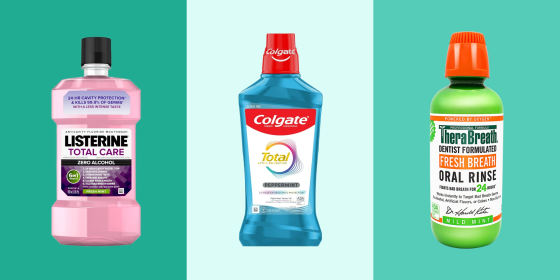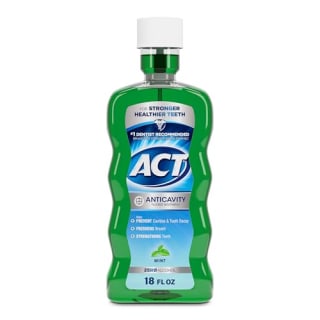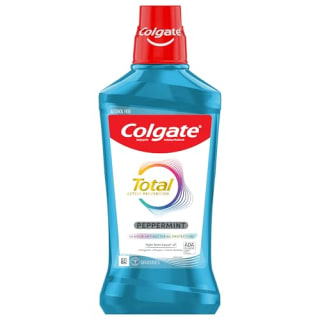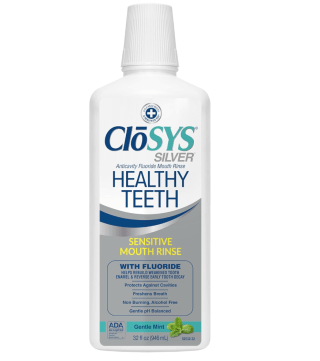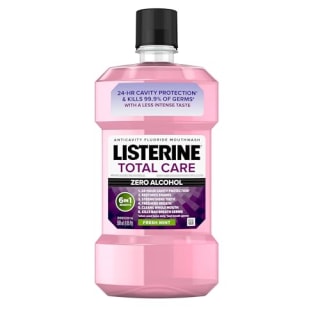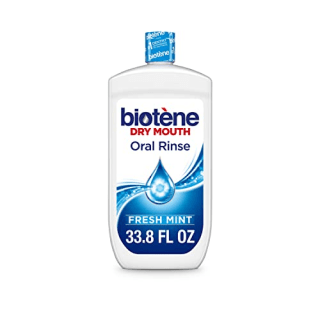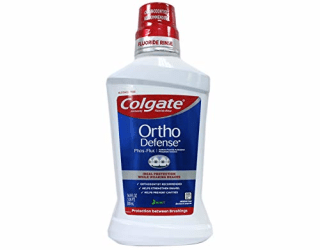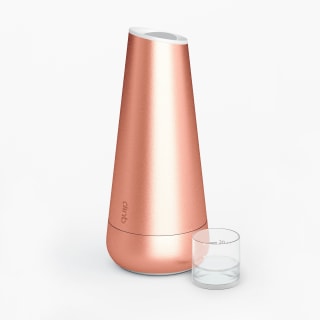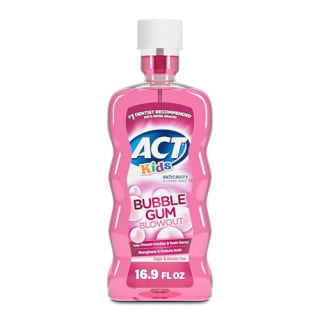The best mouthwashes of 2026
With all of that in mind, I rounded up ADA-accepted options available over the counter. I included important information about each mouthwash, like its type, purpose, active ingredients and what flavors it comes in. Every option is also alcohol-free.
Best for cavity prevention
I've been using this flouride mouthwash ever since my dentist recommended it to me years ago. It helps prevent cavities, strengthen enamel and freshen breath, according to the brand. I buy the mint flavor, which is concentrated enough to leave my mouth feeling fresh and clean, but subtle enough that it doesn’t last for too long. I appreciate that the bottle’s opening has a built-in dosage cup — you hold the bottle upright, squeeze its center to fill the line on the top and pour it into a cup. You need to give the fluoride in this mouthwash time to work once it’s on your teeth, so the brand recommends not eating or drinking for 30 minutes after rinsing.
Best for bad breath
NBC Select commerce editor Cory Fernandez uses TheraBreath’s mouthwash because it has a gentle formula that never makes his gums feel like they’re stinging. He also likes that it comes in various mild flavors, all of which leave his breath fresh. The mouthwash kills odor-causing bacteria and gets rid of bad breath for up to 24 hours when you use it every 12 hours after brushing, according to the brand. You can use the bottle’s cap to measure the appropriate serving of mouthwash.
Best for gingivitis prevention
“Because my mom is a dental hygienist, she’s always bringing home oral care products and recommended this mouthwash to me because it’s great for the overall health of my mouth,” says former NBC Select associate reporter Bianca Alvarez. “I use it after brushing and flossing, and I feel like my teeth are cleaner overall and my mouth feels more fresh.” Colgate’s rinse fights the bacteria that contributes to issues like gingivitis, plaque and bad breath for up to 24 hours after use, according to the brand. It’s also made with zinc to help freshen breath. I’ve tried the peppermint flavor of this mouthwash, which has a strong flavor that quickly gets rid of lingering tastes from food or beverages.
Best for sensitive teeth
CloSys’ anticavity mouthwash has a non-burning, non-irritating, pH-balanced formula that strengthens tooth enamel and freshens breath, according to the brand. Since the mouthwash has fluoride in it, the brand recommends not eating or drinking for 30 minutes after rinsing.
Best mild taste
Listerine’s mouthwash helps strengthen enamel, prevent cavities and freshen breath, according to the brand. It has a mild taste, and since it’s made with fluoride, the brand recommends not eating or drinking for 30 minutes after rinsing.
Best for dry mouth
The ingredients in this rinse help moisturize the mouth to relieve dryness and related symptoms like chapped lips, stickiness and bad breath for up to four hours after use, according to the brand. You can use the mouthwash up to five times a day.
Best for braces
White spots sometimes form on teeth when you have braces due to plaque buildup and enamel loss around the brackets and wires. Colgate’s mouthwash helps prevent them by strengthening enamel with fluoride, which also prevents cavities, according to the brand. The bottle’s cap has a measurement marker inside it to help you pour out the appropriate amount of rinse.
Best refillable
Quip’s mouthwash dispenser looks nicer on your bathroom sink or in your cabinet compared to a typical bottle. The bottle is available in plastic and metal finishes, and the cap doubles as a dosage cup. You can either buy recyclable mouthwash concentrate refills as needed or subscribe to a refill plan on Quip’s website. The mouthwash reduces bad breath and helps prevent cavities, according to the brand. Since it’s made with fluoride, Quip recommends not eating or drinking for up to 30 minutes after rinsing.
Best for older kids
Once kids outgrown cartoons on their dental care products, you may want to start buying them a mouthwash like this one instead. It still comes in fruity flavors, but its packaging feels a little more grown up. Act’s mouthwash helps prevent cavities and strengthen enamel, and since it’s made with fluoride, the brand recommends not eating and drinking for 30 minutes after rinsing. The bottle has a built-in dosage cup — you hold the bottle upright, squeeze its center to fill the line on the top and pour it into a cup.
Frequently asked questions
Anyone can add mouthwash to their oral care routine, but it usually benefits people with gum disease, frequent cavities, dry mouth and bad breath most, says Salierno. That’s because mouthwash is made with ingredients that specifically target these issues. People who have braces or dental work like bridges also benefit from mouthwash because it can reach areas that brushing might not, he says.
One important thing to keep in mind: if you’re using mouthwash and have persistent bad breath, it may be a sign of an underlying issue, so talk to your dentist, says Salierno.
Ideally, you should use mouthwash twice a day, says Messina: once in the morning and once at night. You can also use it after meals to freshen breath and wash away food particles.
It’s best to use mouthwash after brushing, but make sure you wait at least 30 minutes before rinsing so the fluoride in your toothpaste has time to work, says Salierno. He recommends flossing first to remove debris, brushing second to clean your teeth and rinsing with mouthwash last to kill bacteria and freshen breath. But in general, don’t get too hung up on what order you do your oral care routine in, says Messina. “The order doesn’t matter nearly as much as actually doing it,” he says.
Whitening mouthwashes are typically made with peroxides, like hydrogen peroxide and carbamide peroxide, which can remove stains on teeth and lighten their color. However, because whitening mouthwashes have such a low concentration of peroxides in their formulas, experts say their impact is minimal. If you use them, you’re not likely to see much, if any, improvement in the appearance of your teeth.
Yes, kids over six years old can use mouthwash, says Salierno. Parents need to supervise them while they’re young to make sure they don’t use too much and spit it out after rinsing. Children should use kids’ mouthwashes, which are typically alcohol-free and have milder flavors compared to adults’ mouthwashes, he says.
Meet our experts
At NBC Select, we work with experts who have specialized knowledge and authority based on relevant training and/or experience. We also ensure that all expert advice and recommendations are made independently and without undisclosed financial conflicts of interest.
- Dr. Chris Salierno is the chief dental office at Tend.
- Dr. Matt Messina is an associate professor at The Ohio State University College of Dentistry and the clinic director of Ohio State’s Upper Arlington Dentistry.
Why trust NBC Select?
I’m a reporter at NBC Select who has covered oral care since 2020, including topics like toothpaste for kids and adults, whitening toothpaste, electric toothbrushes and water flossers. To write this article, I interviewed two dentists about how to shop for mouthwash and rounded up the best options available over-the-counter.
Catch up on NBC Select’s in-depth coverage of tech and tools, wellness and more, and follow us on Facebook, Instagram, Twitter and TikTok to stay up to date.

